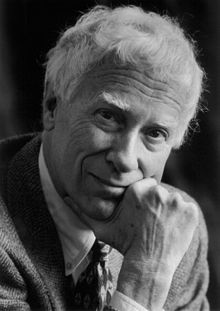I’ve been teaching professionally for 15 years consecutively – and I’ve been engaged in teaching in more than one way or another for more than 20 years. I am still not convinced that I’m a good teacher, that I “know” “how to” teach with demonstrated excellence in all ways. (There are so many variables!!!) Yet, I do know this, collaborative and shared learning – when a class of learners “takes on the task” of learning together – makes the learning experience(s) much more enjoyable! And, when learners share the task of learning – researching, reading, thinking – the learning itself takes on more value, has more personality and has greater effect in shaping a person’s real life.
Several years ago, I was “the expert” who was “the teacher” that received, read, and graded the work of a few specific persons. These same specific persons have become, thanks to grant funds from the Lilly Foundation, Inc. in this past year, shared learners together in a new way without me being “the expert.” It was different than me “teaching” and them “learning” – but us learning together. Five former students and I spent, in intentionally funded and supported ways – time learning together, thinking together, eating together, and becoming friends. It’s been a delight.
When I was in high school and doing my B.A. work at the University – no one really came alongside me and became my friend and invested in me. I had good professors – experts – and I enjoyed many of them. I remain professionally connected and in a true friendship with them – but it is not the same as what has happened for this “group of guys” over this past year.
Because “no one” “helped” me know how to queue up for things – because no one told me what it means to get engaged in a Scholarly Community or the Academic Guild – I didn’t really know how to do it. I have no expectation that the majority of learners in my classes will become my friends. And, I have no expectation that the majority of learners in my classes will embrace life-long learning. And I have no expectation that the majority of learners in my classes will go on to become “Academics.” Nevertheless, I am sure thankful that over time I’ve learned better ways that I can extend friendship with learners – so that – even when the “expert” “classroom” relationship ends – and I stop receiving, reading, and grading their work – we can be friends together who partner in peer learning that will shape our lives, our work, and our identity for a lifetime!
I am inspired to be more collaborative and intentional – more relational and connected with learners in and through classroom experiences – and outside of classroom experiences!
If you’re a professor or teacher and you’re reading this – let me encourage you to build relationships in the classroom that can serve as the “soil” to foster other kinds of relationships when the classroom experience ends.
If you’re a professor or teacher or pastor and you’re reading this, let me encourage you – find a way to connect with peer-professionals and share and learn and live together. I realize that making connections can be difficult because we’ve all too often been taught to “look out for ourselves” And yet, I can assure you – routine connection with a vibrant group of shared, invested peer-learners – can give life a whole new energy that is exciting!
Thanks Wendell, Levi, Eli, Stephen and Jeremy. And . . . as we start new year . . . welcome Paul!
And Jonathan . . . I hope the application gets accepted! We’ll know soon!


